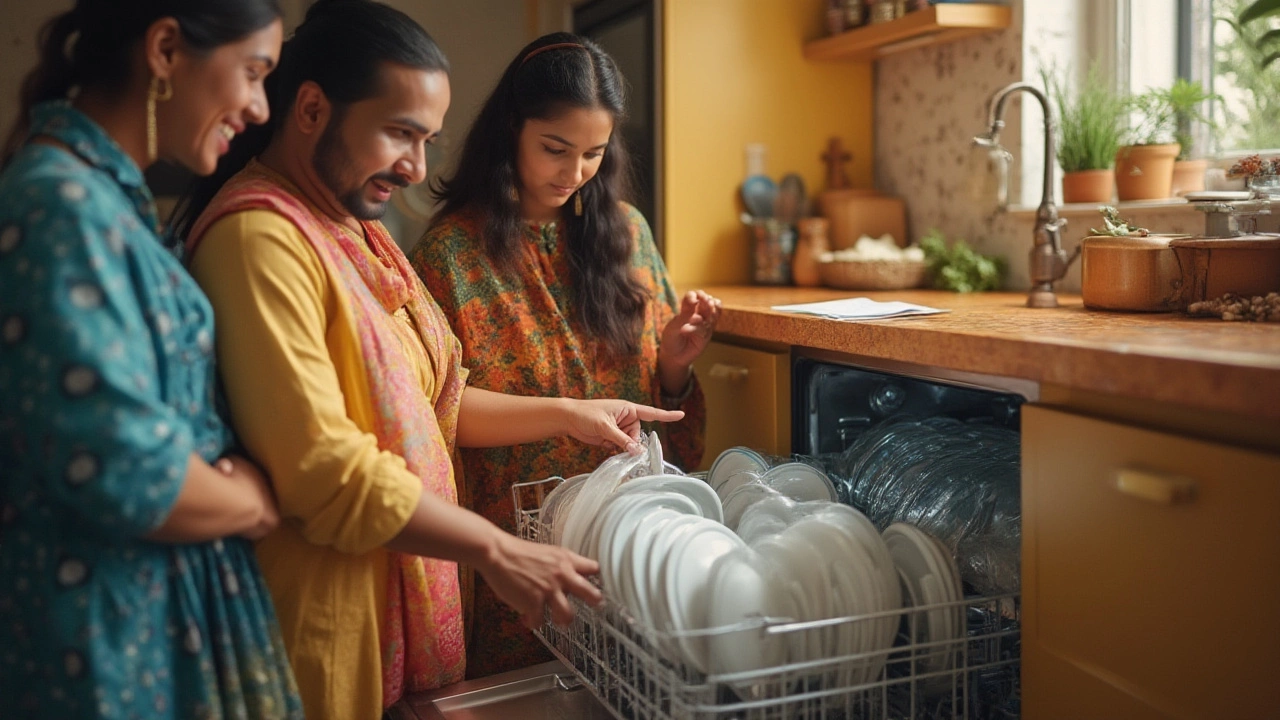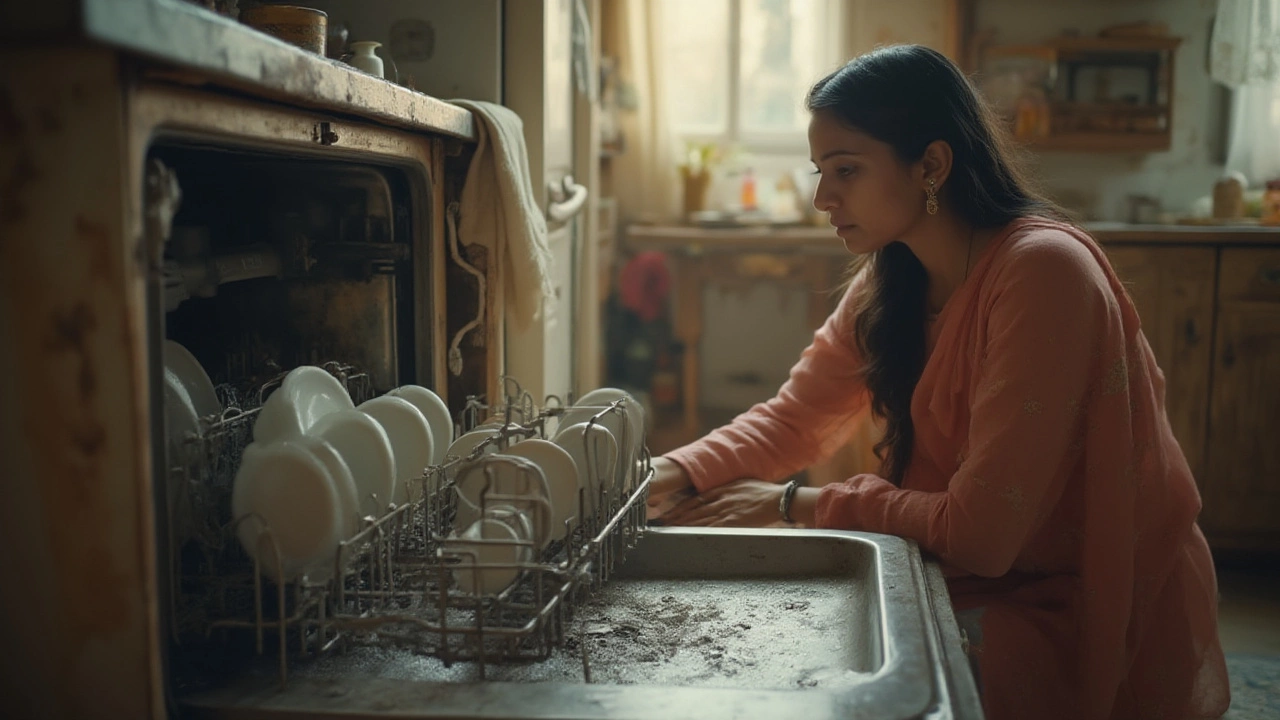
The first time you walk into your kitchen and smell that weird, burnt-plastic odor from your dishwasher, you know something’s up. Just last night, my daughter Annelise asked why her cereal bowl was streaky, even though it had “just been washed.” Trust me, there’s nothing like a stubborn grape jelly stain to make you question whether your once-trusty dishwasher is ready for early retirement. The truth is, dishwashers don’t last forever, and figuring out the right time to swap yours out is trickier than reading IKEA assembly instructions. With new models promising lower water use, less noise, and smarter cleaning, is it worth stretching those extra months? Or are you quietly creating a science experiment inside your appliance? Let's cut through the uncertainty and get the real answers you need.
How Long Do Dishwashers Really Last?
If you Google “dishwasher lifespan,” you’ll see numbers all over the place—some say seven years, others claim fifteen. So what’s the truth? The National Association of Home Builders puts the average at about 9-12 years. But, as anyone with an aging machine knows, average doesn’t mean guaranteed. Plenty of us have seen machines grind to a halt at barely half that age, while others clatter along well past a decade with only minor hiccups.
So what really affects how long a dishwasher lasts? For starters, how often you run it matters. According to a 2023 Consumer Reports survey, families that run their dishwashers once a day wear out their machines much faster than people who only use them a few times a week. Quality of the brand counts too—Bosch and Miele models have a reputation for stretching closer to the 15-year mark if treated properly, while budget models may sputter out sooner. Water quality plays a sneaky role; hard water can build up mineral deposits, clogging jets and shortening the machine’s working life. Don’t forget about installation and maintenance. Incorrect hookups, skipped filter cleaning, or neglecting to check the door seal can cut years off your dishwasher’s lifespan.
I once got ten years out of a mid-range Whirlpool by simply clearing the gunk from the filter every few months and wiping down the door seals so they’d keep a tight fit. My friend Katie, on the other hand, had a four-year-old machine conk out because her family tossed in un-rinsed, crusty pans and let broken glass rattle around the drain. Sometimes, how you use your dishwasher is just as important as what you buy or how much you spend.
Here’s a look at average lifespans for popular brands, based on actual user data and manufacturer info:
| Brand | Expected Lifespan (Years) |
|---|---|
| Bosch | 10-15 |
| Miele | 12-15 |
| Whirlpool | 8-12 |
| GE | 7-12 |
| LG | 10-13 |
| Samsung | 8-12 |
If you’re closer to that magic decade mark, your dishwasher is already living on borrowed time. But age alone isn’t the only thing to watch—which brings us to the next big clue.

Obvious (and Sneaky) Warning Signs You Need a New Dishwasher
So, how do you know it’s finally time to replace your dishwasher and not just call for another repair? Some warning signs are hard to miss: puddles on the floor, strange grinding sounds, or a machine that simply refuses to start. But there are sneakier symptoms too, and catching these early could save you from bigger headaches down the road.
- Performance drops: Dishes come out dirty, cloudy, or with soap residue—even when you follow all the loading rules.
- Strange noises: New thumping, squealing, or grinding suggests a failing motor or worn-out parts.
- Leaks: A small drip now can turn into water damage or mold behind your cabinets.
- Rust inside: Orange spots inside the tub or around the racks point to corrosion. If you spot rust on the heating element, replacement is a smart move.
- Door won’t latch: A faulty latch doesn’t just mean inconvenience; it can cause leaks or trigger safety shutdowns.
- Electrical smells or smoke: Yeah, that’s never good. If your machine smells like burning plastic or the wiring, unplug and stop using it immediately.
- Sky-high energy or water bills: Older machines use more water and power than newer Energy Star models. If you notice bills creeping up, your dishwasher could be the culprit.
- Cracks in the tub: Even small cracks let water sneak out, and these aren’t worth fixing since repairs are usually temporary at best.
- Longer cycles: When your dishwasher starts taking twice as long to do half as much, it often means a failing sensor or aging pump—not worth pouring money into.
- Repairs start piling up: If you’ve called out a technician more than once in the past year, it’s time to do the math: experts say when repairs hit 50% cost of a new model, you’re better off replacing.
Remember, if you spot two or three of these signs at the same time—especially along with age over eight years—it’s not doing you any favors to put off a replacement. Newer models run quieter, clean better, and can knock $35-50 off your annual utility bills. And trust me, no one wants to mop up a mini flood before rushing the kids to soccer practice.

Tips to Stretch Your Dishwasher’s Life and Get the Best Replacement
Before you start shopping for a shiny new machine, it’s smart to make sure you’re getting all the mileage you can out of your current dishwasher. Proper care can literally double your dishwasher’s “mileage,” and a few easy habits make a real impact.
- Clean the filter monthly: Most people have no idea their dishwasher even has a filter. Clogged debris practically begs for breakdowns; a five-minute clean can prevent major repairs.
- Check and wipe the gasket: A soft, damp cloth can keep seals from drying out and leaking. Replace gaskets that are cracked or stiff.
- Watch water temperature: Make sure it hits at least 120°F (49°C) for best cleaning. Too cold, and soap won’t activate; too hot, and you risk wearing out plastic parts.
- Use dishwasher-safe detergents: Powder, liquid, or pods—all are fine if your machine’s manual approves them. Using the wrong one can wreck the pump.
- Scrape (but don’t rinse) plates: Dishwashers actually need a little grime; perfectly clean plates confuse sensors and leave soap residue.
- Run hot water before starting: Turn on the sink faucet ‘til hot water flows, so your first dishwasher fill isn’t lukewarm.
- Inspect the spray arms quarterly: Pull them off and poke out hard-water buildup with a toothpick to keep water jets clear.
- Don’t overload! Packing in dishes makes spray arms jam, and some pieces just won’t get clean.
Even with top-notch care, all dishwashers retire eventually. When you’re finally ready for a replacement, focus on what matters for your household. New Energy Star dishwashers use replace dishwasher cycles with under 3.5 gallons of water per load—half what models used ten years ago—saving serious cash if your family eats as much mac and cheese as mine does. Keep an eye out for flexible racks, third racks for utensils, and Wi-Fi features if you want smartphone alerts. For families, quiet models (under 44 dB) make a big difference, especially in open kitchens.
Wondering what to do with your old unit? Many appliance stores will haul it away when you buy a new model. Some communities even recycle dishwashers for free, stripping out metals and plastic for reuse. Don’t just dump it on the curb; your next spaghetti night and the planet will thank you.
So how often should you really replace your dishwasher? Most people will find themselves shopping for a new model every 10-12 years. Watch for those warning signs—extra noise, persistent leaking, lousy cleaning—and use them as your cue. Stay ahead of breakdowns by doing monthly filter cleans, keeping seals fresh, and spotting trouble early. A well-chosen replacement will save time, money, and plenty of family dinner drama—you’ll even impress the kids when their bowls finally come out sparkling.